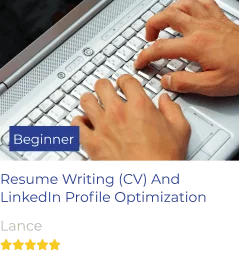The world is changing faster than ever today, along with the change in opportunity and economic shift. Although it is projected that machines and algorithms will take more tasks that humans do, there are still more work opportunities than ever. As we have been through incredible technological advancement for the past years, jobs requirements have been more complex and ever changing in scope, thus requiring new skills to fill the responsibilities. To give you a short background about skills gap, these are differences in the skills that an employer expects from their employees and the skills a job seeker possesses.
To fill the skills gap and stay on track or even ahead of your career, you need to stay updated on the current trends and learn new hard skills that are important to the industry. While technical or hard skills are essential, it is surprising that soft skills equally matter too, because these are the least susceptible to artificial intelligence.
What are soft skills and hard skills? These are the two skills set an employer looks when an employer considers a job seeker’s application.
Regardless of what professionals do, they should learn and practice their soft skills. Soft skills are less measurable and less commonly taught. These are personal attributes that describe your approach to your relationships with other people, work, and life.
These are the common soft skills an employer likes to see in their employees:
1. Leadership skills.
Take on responsibilities of a leader such as volunteering to work on a project or handle team members.
2. Communication skills.
Both written and verbal communication skills are essential in the workplace and enhance your performance because you can clearly communicate your thoughts and improve the chances of building your relationship with your colleagues.
3. Critical thinking.
This is a valuable soft skill because you have the ability to think logically and solve problems. Employers seek for an employee who can solve problems quickly and most importantly effectively.
4. Attention to details.
This is the ability to focus on the thoroughness and accuracy of your project that affects the overall quality.
5. Teamwork.
You demonstrate collaboration, good communication, leadership, and how you get along with your colleagues.
Next are the hard skills. These skills are teachable abilities and measurable. These are specific knowledge and abilities that are required for a job, for example, typing, writing, or the ability to use software programs.
Software development skills are facing a shortage. Digital skills gap such as software development skills are gradually getting longer, as the shortage of skilled workers grows. According to LinkedIn, there are nearly 850,00 open roles in the US who are looking for professionals with software development skills like SQL, software, and performance tuning.
Here are some of the hard skills with related jobs and average salaries, that companies find harder to fill based on LinkedIn:
1. Cloud and Distributed Computing
Related Jobs: Platform Engineer ($120,000), Cloud Architect ($135,000)
2, Statistical Analysis and Data Mining
Related Jobs: Business Analyst ($72,000), Data Analyst ($62,000), Statistician ($90,200)
3. Middleware and Integration Software
Related Jobs: IT Manager ($95,000), Systems Integration Engineer ($98,000)
4. Web Architecture and Development Framework
Related Jobs: Web developer ($65,000), Full Stack Web Developer ($77,000)
5. User Interface Design
Related Jobs: UX Designer ($85,000), Web Developer ($65,000), UI Designer ($72,000)
Learn how you can start your new career in design, with online UI/UX design courses.
6. Software Revision Control Systems
Related Jobs: Web Developer ($65,000), Software Programmer ($64,000)
7. Data Presentation
Related Jobs: Graphic Designer ($45,000), Data Scientist ($114,000), Business Consultant ($84,000)
8. SEO/SEM Marketing
Related Jobs: Marketing Specialist ($49,000), Online Marketing Manager ($80,000), Advertising Manager ($61,200)
9. Mobile Development
Related Jobs: Mobile Engineer ($95,000), Mobile Application Developer ($83,800)
10. Network and Information Security
Related Jobs: Information Security Specialist ($96,000), Cyber Security Specialist ($92,500)
11. Marketing Campaign Management
Related Jobs: Online Marketing Manager ($80,000), Digital Marketing Specialist ($52,000), Digital Marketing Manager ($77,000)
12. Data Engineering and Data Warehousing
Related Jobs: Software Engineer ($95,000), Database Developer ($85,000), Data Analyst ($62,000)
13. Storage Systems and Management
Related Jobs: Database Administrator ($91,000), System Administrator ($68,800)
14. Electronic and Electrical Engineering
Related Jobs: Electrical Engineer ($81,000), Electronic Engineer ($88,400)
15. Algorithm Design
Related Jobs: Software Engineer ($95,000), Lead Software Engineer ($120,000), Lead Developer ($109,000)
16. Perl/Python/Ruby
Related Jobs: Software Engineer ($95,000), Data Scientist ($114,000)
17. Shell Scripting Languages
Related Jobs: Linux System Administrator ($75,000), System Engineer ($90,000), Java Developer ($80,000)
18. Mac, Linux and Unix Systems
Related Jobs: System Administrator ($68,800), Linux System Administrator ($75,000)
19. Java Development
Related Jobs: Java Developer ($80,000), Web Developer ($65,000)
20. Business Intelligence
Related Jobs: Business Intelligence Analyst ($73,100), Forecast Analyst ($64,000)
21. Software QA and User Testing
Related Jobs: User Experience Engineer ($85,000), Software Test Engineer ($80,000), Quality Assurance Engineer ($77,000)
22. Virtualization
Related Jobs: Network Engineer ($82,000), Network Administrator ($65,000)
23. Automotive Services, Parts and Design
Related Jobs: Vehicle Engineer ($96,500), Industrial Designer ($63,600)
24. Economics
Related Jobs: Business Development Manager ($99,000), Auditor ($56,000), Research Analyst ($56,400)
25. Database Management and Software
Related Jobs: Database Specialist ($54,000), Database Administrator ($91,000)
Let us continue to improve our skills!
As an employee, you should continue to learn and relearn skills as technology is continuously transforming. Even though there are machines and algorithms that take more tasks that humans do, companies still need human skills to develop ideas and products. To fill the skills gap, would be employees need to learn and develop the soft and hard skills a company expects from their talents and human resources.
Ready to move up in your career? Click here to get started.





